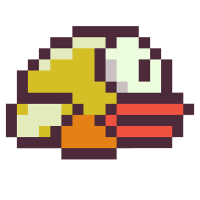
Primitive Data Types
C/C++ being rather old languages, the width of types like int, long, etc have changed over time, from 16 bit CPUs to 32 bit and now 64 bit ones. This enables programs using such types to be generic and largely usable on all these target CPU architectures (potentially even ones in the future). The only generic type that has a guaranteed size is char (1 signed/unsigned byte on all modern platforms) - this is also a reason why files are read as arrays of chars (bytes).
However, type sizes are extremely crucial in game programming, and we will never use (variable-sized) generic types*. Fixed size types are implementation/compiler defined in <cstdint>, like uint32_t for unsigned 32 bit integer, int64_t for signed 64 bit integer, etc; It is common practice to create a header that aliases them to u32 and s64 / i64 etc, for shorter and consistent type names.
Useful aliases:
using u8 = std::uint8_t;
using s8 = std::int8_t;
using u16 = std::uint16_t;
using s16 = std::int16_t;
using u32 = std::uint32_t;
using u64 = std::uint64_t;
using s32 = std::int32_t;
using s64 = std::int64_t;
using f32 = float;
using f64 = double;
using size_t = std::size_t;
*Exception: use size_t for array indices, sizeof, etc, as it will always take the size of the largest unsigned integer for the platform/executable.
